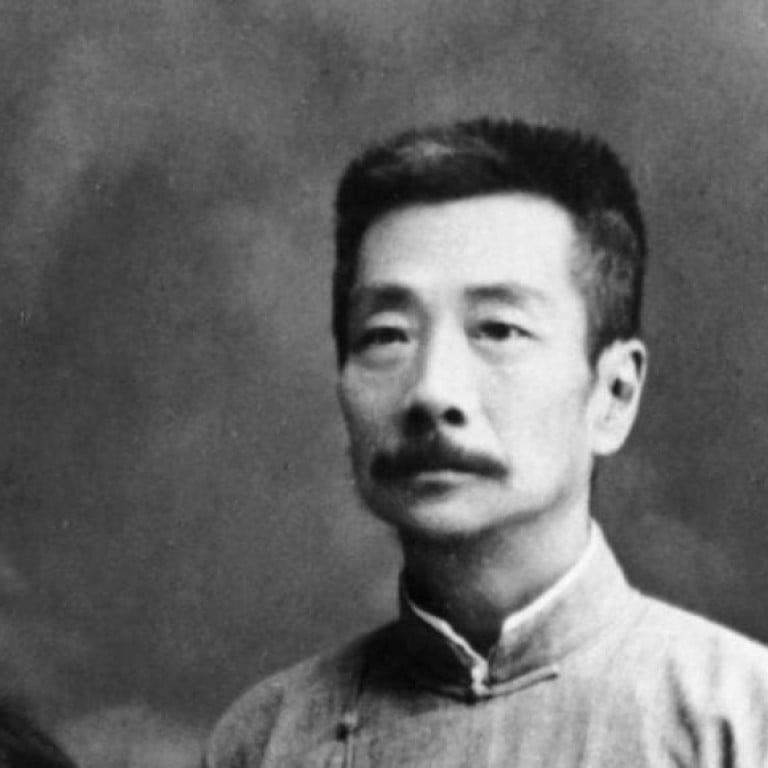
Parents angry at removal of Lu Xun's works from China's school textbooks
Parents, intellectuals are upset over removal of essay by Lu Xun; pupils say work too difficult
An essay by Lu Xun, a towering figure of modern Chinese literature, has been dropped from the latest edition of middle school textbooks, triggering an outcry among parents and intellectuals, who say the author is essential to understanding the national psyche.
The People's Education Press, a government-backed publisher that supplies most of the mainland's textbooks, removed Lu's essay as part of revisions to its seventh-grade textbooks for Chinese and literature.
For years, pupils and teachers have long complained Lu's works are too difficult for young people to understand and that his insights into Chinese culture, written almost 100 years ago, are losing their relevancy. The decision may please them, but others feel it is a step in the wrong direction.
Tens of thousands of people posted comments online overnight on Wednesday after a newspaper in Henan reported the editing decision. In two surveys conducted on Sina's Weibo, the mainland's most popular microblog site, more than 85 per cent of respondents disagreed with removing Lu's essay.
Lu Xun was the pen name of Zhou Shuren (1881- 1936), who wrote using both traditional Chinese conventions and 19th century European literary forms. He penned short stories, essays and letters that had an enormous impact on modern China. His two short story collections, ( or ) and ( ) were established classics and often viewed as marking the beginning of modern Chinese literature, said Qian Liqun , a professor of literature at Peking University.
"For China's reformers and intellectuals of different generations, Lu 's importance to the country lies not only in literature. His works fostered introspection in Chinese society and led to the questioning of orthodoxies and authorities," Qian said.
"Even now, when reading his writings, you will feel powerfully inspired to think critically about society and the authorities of China's past, its present, or even of its future."
It is a common experience for many teenagers to gain their first insight into the darker aspects of the national character through Lu's works - he vividly captures and dissects China's obsession with "face"; its superiority complex, servility before authority and its cruelty towards the weak.
In 2009, mainland media looked into how prevalent Lu Xun's works remained in schools. They found that only three of his writings were included in the latest textbooks for senior high school pupils published by the People's Education Press. Previously, they included two of his most admired short stories and
Su Huitao , who taught Chinese and literature in middle schools for 30 years before retiring, said about eight or nine of Lu's works were included in textbooks for most middle school pupils, and about seven in junior high school and three in high school.
"That's a big reduction compared to editions we used in the 1980s and 1990s," Su said. "We were told by education officials that middle school pupils need to study 'age-appropriate' material and should not be reading such deep and abstruse works."
Many pupils say they dislike studying his works, arguing his writing is indeed difficult and written in an archaic style that is difficult to learn.
"His works are all about criticism of society in the early 1900s. That's too distant from our life," said a Shenzhen-based grade 11 pupil. "Our society is now peaceful and rich."
Some parents and college students think learning Lu's works is a necessity for all young people.
"I disliked Lu's works when I was a middle school student. But now that I am an adult, I find his works are like a seed. I hope every Chinese uses them to prompt self-reflection about our society when confronted with unfair social issues," said Liu Weilan, a Dongguan-based mother in her 40s said.
"I felt sad and angry when I saw the authorities had taken take away , and from my child's textbook. Learning these works is a good way for teenagers to learn how to think critically. That's what I want my daughter to learn from school."

